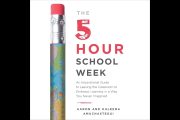Democrat Virginia Governor Ralph Northam’s sex textline for teens has angered and concerned parents in Virginia — and rightly so. In a previous article, The New American reported on the sex textline and how postcards addressed to teens have been mailed out promoting the service as a way for teens to anonymously connect with adult strangers to ask questions about sex and sexuality. The New American reached out to parents to ask about their concerns.
What they had to say is illuminating.
Some of the parents this writer talked to were unaware of the postcards. Either they had not received them yet or — because they are addressed to teens who check the mail themselves — their kids got them and did not mention them. In healthy families with strong connections between parents and their kids, it is possible that the postcards were seen for what they are: junk mail deserving of the trash. But, there is no guarantee of that. The governor and his accomplices in this scheme certainly know that the numbers are in their favor; i.e., by addressing postcards to teens all across Virginia, Northam’s Virginia Department of Health (VDH) is assured of a high return for the American Sexual Health Association (ASHA), which actually administers the sex textline.
And that is the concern of many parents.
One such parent is Michael Lewis. Michael Lewis and his wife, Kimberly, both 34, are the parents of three young children — ranging from nearly one year old to five. They live just outside Fredericksburg. Micheal told The New American that this is “the state trying to steal children away from the family and usurp parental authority.” In this, he agrees with Victoria Cobb, President of the Family Foundation. In a previous article on this topic, this writer quoted Cobb as saying, “All adults should be encouraging kids to talk to their own parents about these sensitive topics.” Cobb went on to say, “Having any conversation over technology about sex — especially with a stranger — is the exact opposite of the way any responsible parent trains their child.”
And though Michael and Kimberly are not parents of teens — and therefore not the parents of kids who are the immediate targets of this sex textline — Michael says they realize that their kids are future targets of this and future plans to subject kids to “sexual grooming.” He told The New American, “What it boils down to is sexual grooming of children — it would be one thing if the public schools said, ‘This is how reproduction works, but you are strongly encouraged to wait because if you get pregnant, it’s not good,’ but that’s not what they’re saying.” He went on to say, “They are encouraging [emphasis in original] teenagers to be sexually active.”
As a concerned and educated parent who has taken the time to understand the development of children, Michael points to the biological differences between kids and adults that go beyond what is normally called “sexual maturity.” He said, “If you look at the data, if you want to go based on what the Supreme Court has said, we don’t execute people for crimes they commit under the age of 18 because according to the neurological medical research, their brains — their reasoning capacity, especially in young men — is not fully formed until their mid-to-late-20’s.”
But yet, Governor Northam and ASHA want to encourage kids as young as 13 to make decisions about sex and sexuality that will impact the rest of their lives — and they are implementing that plan by making an end-run around the God-given authority of parents. Not only that, but Michael points to the financial irresponsibility of Northam’s sex textline. Virginia is in the middle of “a big budget crunch and yet they’re spending money trying to get teenagers to text complete strangers about sex, about contraception, abortion, and sexually transmitted diseases.”
As to Michael’s concern that governor Northam’s sex textline is a form of “sexual grooming” of kids, the next article in this series will address that issue, drawing from the experience of a former private investigator in Virginia who spent years investigating such cases.
Another Virginia parent of teens who spoke to The New American is Mike Seeley. Mike and his wife, Anna, live near Powhatan. They are the parents of 13 kids (10 boys, three girls) ranging from less than two years old to 26. Among their brood of children, Mike and Anna have a handful of teenagers.
Mike said they had either not received the postcards or they were thrown out as junk mail. I sent mike a copy of the postcard, and he said, “My first thought was, ‘Here we go again. This is another step in the decades-long attempt by the State to circumvent the parents’ authority — not only the parental authority to teach their children, but the moral authority of parents to instill morals in their children.’” He went on to say, “This is the State swooping in to say, ‘No, no, no. Don’t listen to your stone-age parents here. Here is what we do nowadays — we use contraception, we use these other types of things. You go ahead and do these activities that your parents might tell you otherwise or might deem to be inappropriate or immoral, but this is the 2000’s, you go ahead and do this. And if you find yourself pregnant, we have ways to take care of that.’”
Mike called this “another manifestation” of what began with sex-ed classes in public schools, adding that it’s “another approach to get kids away from the morals their parents may want to instill in them.”
When asked if he is concerned that his teens may fall prey to something like this — having questions about sex or sexuality that they may not want to ask mom and dad, but might be willing to text to a stranger — Mike answered, “I would like to think that my kids wouldn’t do this because we try to do our best to have open conversations with our kids.” Mike was quick to add, “Maybe we do a good job of that and maybe we don’t, but I would like to think my kids would look at this and go, ‘Psh. I’m not texting some complete stranger who I have no idea who he or she is, where he or she is, what his or her background is.’” But, Mike realizes what Michael Lewis realized about brain development in teens, adding, “However, teenagers are teenagers, and they don’t always do the things we want them to do.”
Mike makes an interesting point, saying that teens who “don’t have an environment [at home] that makes it easy for them to approach a parent” are probably much more likely to fall prey to something like this. When asked what he thinks parents should be doing to protect their kids, Mike said:
I think it’s a two-pronged approach: First, parents have to take the initiative to educate their children — kids have to have the moral foundation with which they’re going to hopefully make something close to the correct decision. If you just leave a kid out there in the wilds — to try to figure things out themselves with the enormous social pressures that we have these days — they’re likely going to make the incorrect decision. So, the first thing is to make sure they have the beginnings of a properly formed conscience to help enable them to make the proper decisions.
That being said, the second thing is that — knowing that kids are kids and temptations are temptations and passions exist — you also have to take the necessary and prudent steps that you can to minimize those temptations and those attacks from without. For example, pornography on the Internet, the kid’s got a device in their hand, and they’re a few button clicks away from all sorts of stuff. And so, as a parent, in addition to teaching them, ‘You shouldn’t look at that stuff,’ you also — knowing teenage boys to be teenage boys [and this writer would insert and teenage girls to be teenage girls] — you have to take proactive steps to mitigate those risks.
Mike works in the IT industry and suggests that parents either set their home router up to deny those types of sites or — for an easier approach for those less tech-savvy — install an Internet filter and reporting software (mike suggests something like Covenant Eyes) that your kids are aware of. With such an app running on all devices the child or teen may use, even if they do give into temptation, mom and dad get a report of that website visit and “you can have the appropriate conversation afterwards.”
Another Virginia parent of both teens and younger kids who spoke to The New American is Meghan Doran. Meghan and her husband, Bill, live in Midlothian, where they are raising their nine kids ranging in age from infant to almost 18. Meghan and Bill agree that the primary responsibility to educate kids about sex and sexuality belongs to the parents and that this is an attempt on the part of the State to further usurp that authority. Meghan is a stay-at-home, homeschooling mom and Bill teaches Theology, Philosophy, and Latin at an all boy’s Catholic high school in the Richmond area.
Meghan told The New American, “As officials of the State, they are asking my children to anonymously — I don’t know who these people are and how they are vetted — contact them with questions that I wouldn’t want them to contact their own grandmother about without me being involved.”
Meghan echoed some of Mike’s sentiments about parents taking seriously their responsibilities. She said, “If parents already have the issue of kids who are doing things online without their parents’ knowledge — behind their backs — sexual things or whatever, then there’s already something — a huge, fundamental issue — that no amount of law making can solve.”
The Dorans do take both their authority as parents and their responsibilities as parents seriously. They regularly engage their kids in age-appropriate conversations about life, sex and sexuality, morals, and religion. Meghan said that when it comes to questions about sex and sexuality, a strong relationship between kids and their parents is essential in helping kids ask those questions to “the right people.” When asked, “Who are the right people?” Meghan relpied, “The first person is a parent. So, if you already have a missing relationship here with your kids, they are not going to you to ask questions about sex first, and their first thought is, ‘I’m going to [what appears to be] a government website to look up this stuff,’ then you’ve already got a huge problem.”
Meghan is right; We already have a huge problem. And — as per usual — the government “solution” is worse than the problem.
Meghan said, “This government is taking advantage of a huge hole in our society.” She added that the “huge hole” is that “relationships between parents and kids have become so skewed that we even have sex-ed classes in school — because who [in previous generations] would have ever thought we’d have gotten to that point?”
She says that she and Bill are open to their kids about a range of topics, including sex and sexuality, morals, and consequences for choices. If a child is old enough to ask a question about a topic, they are old enough to hear an age-appropriate answer. She said, “They know they can come to us with any question and we’re not going to be scandalized or shocked or act like we don’t know what they are talking about.” She added, “It helps that we have a lot of kids, so when I’m pregnant and the kids who are 10 or 12 years old — it’s a very easy transition to talk to them about the development of the baby in the womb. So there’s a whole lot of bodily questions for a young girl [the Dorans’ boys are both very young]. And when the girls are about 10-12 years old, depending on their development, I start to talk to them a little more clearly about their cycle and what it’s for and the point of that whole beautiful woman’s body that’s being created for them.” That way, “it’s not a mystery for them when changes start happening.” So, “even though they might be scared or weirded out by it, they come to me and ask, because we’ve already talked about it.” So honesty, respect, and openness breed trust. What a novel concept.
She said that those conversations are all in the context of “what are purity and modesty and what are they for?” When asked how she and Bill would respond to one of their girls coming to them to ask about feelings of sexual attraction to a boy, Meghan said with her girls, she has had questions about attraction to boys. She said, “First, if nothing physical has happened, then the feeling aren’t super strong, because you haven’t done anything to provoke them. The feelings are there, but just as a calling — a normal attraction.” That distinction is why Meghan says it is important to have these conversations all along, so that you can prevent kids from “crossing that line” and seeing feelings go from “a normal attraction” to “a fire.” She added, “When those questions have been asked, then the response is, ‘That’s totally normal. And that’s O.K. You’ve been given these feelings for a reason. Because one day you’re supposed to get married and have children. So that is what these feelings are for.’” That is followed up with, “But you understand that you can’t act on those feelings, because if you do, an attachment follows and it will make it very difficult for you to think clearly about this young man.”
Given even the brief sampling of parents this writer spoke to for this article, the choice between having concerned, dedicated parents educating their kids about sex and sexuality and handing that over to an anonymous textline administered by God-knows-who is a no-brainer.
Parents are the custodians of their children — that includes forming their morals and consciences and teaching them the rights and wrongs of the birds and the bees.
This is the second article in a series about the sex textline for teens. The first article addresses the textline itself. The next article in this series will address the “sexual grooming” nature of the textline and how it endangers kids by making them easier targets of sexual predators.





